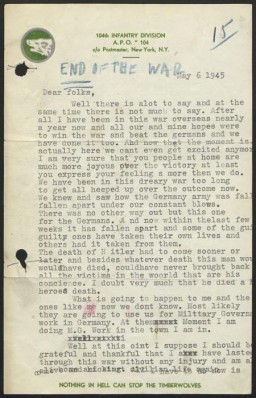You searched for: 合约理财投资源码搭建【TG���������@EK7676】平台包网搭建合约理财投资源码搭建【TG���������@EK7676】平台包网搭建1nFO9f1mTS
<< Previous | Displaying results 511-520 of 653 for "合约理财投资源码搭建【TG���������@EK7676】平台包网搭建合约理财投资源码搭建【TG���������@EK7676】平台包网搭建1nFO9f1mTS" | Next >>
-
Hannah Rosenblat
ID CardHannah was one of six children born to Yiddish-speaking, religious Jewish parents in the town of Zvolen in central Poland. She married Jozef Rosenblat, a Jewish shoemaker also from Zvolen. After living in Warsaw for several years, Hannah and Jozef settled in the industrial city of Radom near their hometown. There, they raised their three sons. 1933-39: When Germany threatened to attack Poland in August 1939, Hannah's youngest son, Herschel, was called up by the Polish army. On September 1, 1939, Germany…
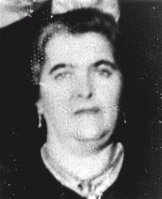
-
Elya Rosenblat
ID CardElya, also known as Eli, was the eldest of three sons born to Yiddish-speaking Jewish parents. When Elya was a child his family moved to the industrial city of Radom, located about 60 miles south of Warsaw. After completing school in Radom, Elya apprenticed to become a women's tailor. Eventually, he became licensed as a master tailor. 1933-39: Elya married in 1936 and had a daughter one year later. He and his wife lived on Zeromskiego Street across from Elya's younger brother, Itzik, who was also a…
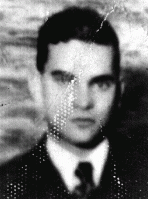
-
Moishe Krol
ID CardMoishe was born to Yiddish-speaking Jewish parents in Radom. The industrial city was known for its armaments factories in which Jews could not work and for its leather industry in which many Jews did. When Moishe was a teenager, he finished school and apprenticed to become a women's tailor. Moishe earned a certificate enabling him to be a licensed tailor and settled down in Radom. 1933-39: By 1939, Moishe had become a master tailor specializing in women's clothes. He remembers local antisemitic…
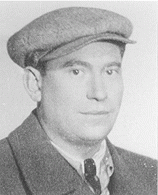
-
Eva Miodelska
ID CardEva was the oldest of four children born to a Jewish family in the central Polish town of Lipsko, about 30 miles southeast of Radom. The family lived at #12 Casimirska Street and Eva attended a private Jewish primary school. Eva's father owned a factory that produced shoes made from leather and cork. 1933-39: In the early 1930s Eva began secondary school in Zwolen, a town about 20 miles to the north. In 1936 her father left for Argentina to settle the estate of his deceased sister. For the two years he…
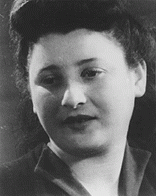
-
Refugees Today
ArticleAs of mid-2022, there were about 27 million refugees. Learn more about these refugees, the violence they face, and the global impact of the refugee crisis.
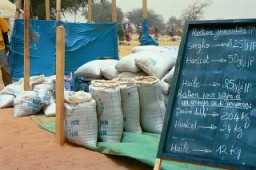
-
Estelle Laughlin
ArticleExplore Estelle Laughlin’s biography and learn about her experiences during the Warsaw ghetto uprising.
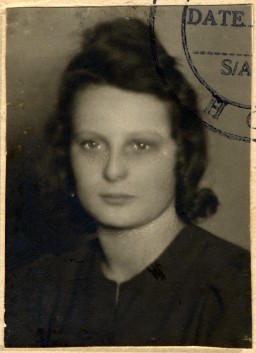
-
Manya Friedman
ArticleExplore Manya Friedmann’s biography and listen to her describe her experiences following the liberation of Auschwitz.
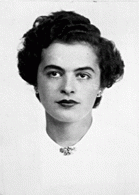
-
Atrocities against Burma's Rohingya Population
ArticleThe Burmese military has targeted the Rohingya people because of their ethnic and religious identity. The military’s actions constitute genocide and crimes against humanity. Learn more
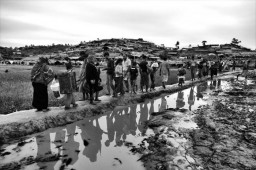
-
Dismissal letter from the Berlin transit authority
DocumentA letter written by the Berlin transit authority (Berliner Verkehrs Aktiengesellschaft) to Viktor Stern, informing him of his dismissal from his post with their agency as of September 20, 1933. This action was taken to comply with provisions of the Law for the Restoration of the Professional Civil Service. On April 7, the German government issued the Law for the Restoration of the Professional Civil Service (Gesetz zur Wiederherstellung des Berufsbeamtentums), which excluded Jews and political opponents…
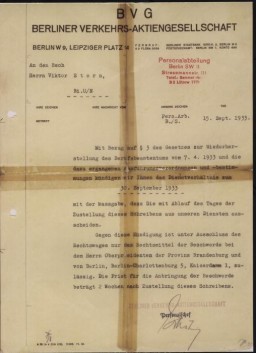
-
Letter home from an American soldier about the end of World War II in Europe
DocumentRudolph Daniel Sichel (b. 1915) left Germany in 1934 for England and then immigrated to the United States in 1936. His father, who had remained in Germany, was arrested during Kristallnacht, sent to Buchenwald for a couple of months, forced to sell his store at a loss, and immigrated to the United States with Rudolph's mother shortly after. Sichel joined the US Army in 1943, attending courses at the Military Intelligence Training Center at Camp Ritchie, MD. He landed on Utah Beach in July 1944 and was…
